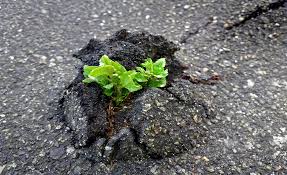Recently, my friend David asked me to call and contact a mutual friend, a single person living in Kelowna, BC. He explained, “She has no close friends there and is desperately lonely. She talks to her kids in other parts of the country, but that is not the same as seeing a person. I just think it helps her to talk. So call her”.
I will call, and had called a few weeks ago, and must remember to be more consistent. I forget that this is a time of great suffering for many people. I have my wife for company and comfort, and our grown children are in our “bubble”, so we can have family meals every so often. I have things to keep me busy and active at home and elsewhere. This is a lonely time for people who are alone and cut off from family, church and community in the pandemic crisis. Whatever their life circumstances, this forced isolation adds a layer of suffering that can be very difficult to bear. But there is hope.
I watched a TED talk called 3 Secrets of Resilient People, given by Lucy Hone. In her talk, she shares three strategies that resilient people use to survive, and recover from, tragic or traumatic circumstances. Perhaps these strategies can help us in this lockdown setting we are in.
First, resilient people know and remind themselves that suffering is a feature of human life and that it does not discriminate. If a person lives a long life they will suffer, and it seems that some people suffer a great deal. Resilient people do not ask, “Why me?” They do not say, “Poor me.” They do not feel that they are being unfairly dealt with, or blame others, or think they are being punished by God. Resilient people simply recognize that this is life and accept the suffering as a part of life.
Secondly, resilient people decide what to focus on. They look for what is still good in their lives, what is working and things for which they are grateful. Research in mental health shows that people who each day write three things for which they are grateful, show lower levels of stress and anxiety, and greater levels of happiness. They deliberately focus on what is good in their lives and give thanks.
Finally, resilient people ask themselves. “Is what I am doing right now helping me or harming me?” Lucy Hone shared that after her daughter died she would find herself looking through pictures of her daughter as a child, and ending up in tears. When this happened she would ask herself the question, and then put the pictures away, knowing that there may be a day in the future when she could do that and not grieve so heavily, but in that moment she needed to stop that behaviour because it was harming her.
This difficult time will end. There will be better days ahead. However, right now we must remember that there are ways to cope, and to use them. We would also be wise to remember St. Paul’s words in Romans 5:20, when he says, “…where sin increased, grace abounded all the more…” God is with us on this journey if we can become more aware of His presence. Prayer, reading the Bible, and using the strategies above may help us to recognize God in the moments when life seems unbearable. God bless you in the days and weeks ahead.
